I recently lost a friend. And that loss hit me harder than I expected.
I was sad when I got the email that Sidney, a beautiful 12-year-old buckskin mare, had died after a brief bout with colic. We weren’t particularly close, although I would say Hello when I saw her and she would greet me, and I always had the feeling she wanted me to call her Heidi instead of Sidney. I thought fondly of her, but I thought more about Kama Kani, who was powerfully bonded to Sidney. I wondered how he would do without her; she was his anchor, his bridge to the rest of the herd.
I didn’t have to wait long to find out.
Less than a week later Kani passed as well. I read the email that morning and wept, with a profound sense of… a lot of things. Maybe I should say I felt many things, especially a sense of the profoundness of this particular moment.
For one thing, I realized in that moment not only how much I loved him, but how much I owed him. He was pretty wild and nervous when he arrived at the ranch yet, while I was cautious around him, I was never afraid of him. And he rewarded me by being the first horse to ask me for Reiki. He taught me what I could do by asking me to do it, and he taught me to recognize the Ask. We grew to trust each other. That story, and the journey it launched, became my first published article.
Kani gave me confidence.
Kani lived most of his life in isolation from other horses, so he came to the herd in a state of… arrested development. Socially retarded. Even though he was an adult, he was like a gangly teenager, learning how to be in the world. Like a teenager, he quickly fell for Sidney when he arrived, and they became a bonded pair. But since he didn’t know how to interact with a herd and didn’t have much confidence, he got pushed around and had low status in the herd… until Rio arrived and carved out a mini-herd-within-the-herd, one that included Sidney – and Kani. Because where Sidney went, Kani went. Rio accepted Kani as part of the package, and Kani’s status in the herd increased.
When Kani came to the ranch, he arrived with the information that he was 18. He also arrived with his ribs showing and an unhappy stomach – for which he asked me for Reiki. But a year later, a visiting dentist said that, based on the condition of his teeth, Kani was likely closer to 30 – making him one of the elders of the herd. It also meant that most of the grass and hay he ate wasn’t getting chewed well and was passing through him mostly undigested. He was immediately put on a routine of twice daily feedings of mash. He appreciated the food and the attention, and he quickly got in the habit of leaving his pals and coming in willingly. And as he started getting more nutrition and his gut felt better he calmed even more and asked me for Reiki less often.
One day I was visiting the herd and I watched as Kani realized he could move Rio and the others – and he did. And they let him. He moved them around the pasture, having a ball. Again he was like an awkward, gangly, blossoming teenager, realizing what he was capable of and discovering his power. Yet he was an old man. I watched him, and my heart filled with joy.
Kani gave me joy.
I will also never forget the day Sharon and I went out to the pasture to bring Kani in for his evening feeding. It was one of the rare occasions that he and Sidney were separated, as she was in the barn recovering from a deep cut on her leg. We found Kani grazing contentedly with Rio and his band, put a halter on him and coaxed him away. I led him down the hill, and we got across the tiny creek at the bottom with no trouble. We headed toward the barn, and then something spooked him and he started circling me while I held on to the lead rope. I saw the two newest members of the herd pass us, and I realized they must have goosed him as they passed.
I managed to calm him and we headed off again toward the barn… until we passed the two newbies. Enjoying the realization that they were higher in status than someone, they came up behind us and moved Kani again. He stayed with me and didn’t bolt back to his pals, but he left his body and started circling again. This time, despite my best efforts, I couldn’t stop him. I started to get dizzy, going around with him. Sharon stepped in and I handed her the lead and stepped out, like a couple of girls jumping rope. She was also unable to stop him. Suddenly Michele, another member of the ranch team, appeared and stepped in and took the lead rope. She stood stock still, passing the lead from hand to hand around her, not turning with him, talking calmly, and suddenly they were moving forward to the barn.
He could have hurt us, but he didn’t.
And just like that day in the paddock when he trusted me enough to ask for Reiki and I trusted him enough be in that paddock with him, Kani gave me his trust, and I gave him mine.
On one of my last visits with him, I saw him with Sidney, apart from the others. I headed over to them, and he came to greet me. He didn’t ask for Reiki; we just stood together, enjoying the sunshine while Sidney slowly moved away down the valley, grazing. I scratched the hollow above his eye, and then he turned and followed Sidney.
Many times in the week after Sidney died, I held Kani in my thoughts and scratched that hollow above his eye.
So I wasn’t surprised when I saw the email with just his name in the subject line. I read the story of his decline and peaceful passing, and I wept as I thought about all he gave me. I wept as I pondered this equine version of those human love stories about life partners who pass within months, weeks or days of each other.
It occurred to me that he was not unlike the clients I worked with as a Job Coach, all of them challenged in some way, many of them unsure of themselves when we met, all of them delightful and earnest and brilliant. I thought about going to work with them, learning their jobs just one step ahead of them, learning things from them, and being so proud of them as they kept showing up and made places for themselves.
As Kimberly Carlisle, co-founder of The Flag Foundation for Horse/Human Partnership, which had adopted Kani, wrote,
“Though I grieve them both deeply, unlike the raw, too early departure of Sidney, Kani’s passing was bittersweet. Though he had lived alone for most of his 30 years, in his 18 months with our herd he had become a complete horse — more confident, balanced, trusting and expressive.”
I pondered all of this, remembering my time with him, and suddenly Kani was here with me. He looked around my apartment, and sniffed at my collection of pictures of roads. Pictures of going places.
After years of being alone in one place, Kani, you got to go places. You are going places.
Life is full of mysteries, and this is one. Sidney went first, and quickly… one day after Kani’s health began to decline. He passed less than a week after Sidney. Did he go because he was pining for her? Did his compromised health make it hard to survive his grief? I think there is something else to consider. What if… knowing that Kani would linger here and refuse to pass when it was time rather than leave her, Sidney chose to go first so that Kani would be free to go?
We’ll never know.
What I do know is that theirs is one of the great love stories. Sidney was a miracle horse, fighting to recover from a malady that almost killed her, coming back to meet Kani and bond with him. And Kani’s is a story of second chances, proof positive that it’s never too late to have a happy childhood.
That night I had a dream about a horse. I was standing in the elevator lobby at a hospital where I used to work, and a black and white tweed horse (yes, black tweed with light flecks, not Kani’s copper red hair) stood with me. The elevator door opened, he kissed me on the cheek, and got on the elevator to go find his beloved.
Good-bye, Kani and Sid. My life is better for having known you.
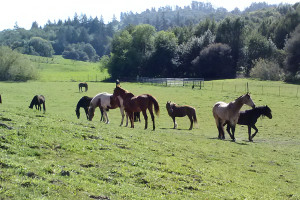
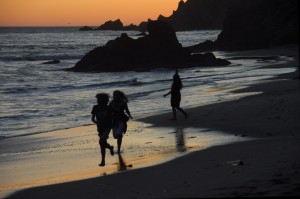

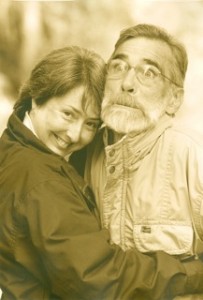
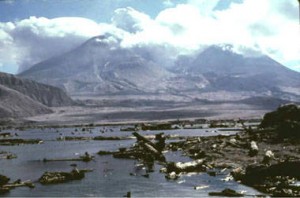
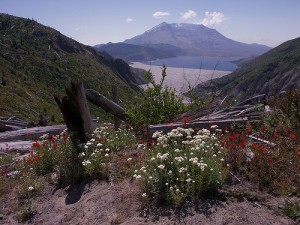
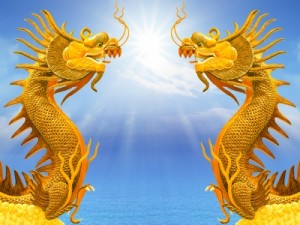




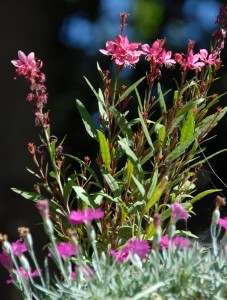


 Twitter
Twitter LinkedIn
LinkedIn Facebook
Facebook